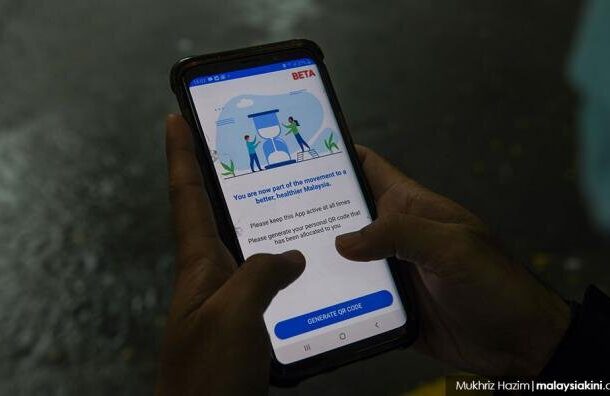
KUCHING: A digital rights activist has expressed concern over the extent federal and state authorities would go to monitor the public’s movement, after several “contact tracing” technologies were included in the battle to contain the Covid-19 pandemic.
Jac SM Kee said authorities should do a thorough study of the impact of such technologies before implementing them.
She said contact tracing technology should be accompanied by privacy and data protection frameworks, including how data is handled and consent from users.
“We cannot be continuing the old ways of implementing policies with wide-ranging impact without due consideration, and then realising soon after that they are actually not effective and in fact, creating more harm than good,” Jac told FMT.
This comes as some cybersecurity experts remain unconvinced with assurances from the Malaysian Communications and Multimedia Commission (MCMC) over fears of privacy breach in the use of Gerak Malaysia and MyTrace, apps the government developed to monitor and manage people’s movement during the pandemic season.
Apart from the mobile apps, two states – Selangor and Sarawak – have introduced their own technology-backed methods for contact tracing.
Selangor proposed a visitor registration system known as “SElangkah: Langkah Masuk dengan Selamat”.
Under the system, visitors to government buildings, commercial and private premises must scan the QR Code provided before they are allowed to enter the premises.
The system will be supervised by the state government and will be accessed by the health officers if new Covid-19 cases are found to have originated from the premise concerned.
Meanwhile, Sarawak has introduced its own digital tracking device to curb the spread of Covid-19.
Those entering the state are given a QR-coded wristband, enabling the authorities to track their locations and perform “random checks” based on information sent from the device.
“It’s alarming to see the myriad of tracking technologies being proposed by different states and state agencies,” Jac said.
“What is common though, is a lack of discussion on these technologies and its impact on fundamental freedoms such as the right to privacy, freedom of movement, right to information and right to health.”
The government has assured that data collected through its MyTrace app is confidential, and is targeting 60% of mobile phone owners in the country to install the app.
But Jac questioned the lack of specifics.
“There is not much information provided on the type of data that are to be collected, where the data will be stored, how they will be secured against abuse and misuse, how people can lodge complaints or have records corrected if abuse or errors happen, and when these measures will end,” she said.
Similarly, she said the wristband approach in Sarawak raises many questions.
“What is the check and balance as well as safeguards being offered against random ‘spot checks’ by authorities in Sarawak based on the QR code?
“What other kinds of information can be collected and who can access this?” she asked.
She said Selangor’s SElangkah would allow authorities to track the movement and location of all those who participated in the “everyday economy of surviving”, including buying groceries.
“It is unclear how long these measures are supposed to last, and if anyone can choose to opt out if they don’t agree with it. Such a wide net being cast over all of our right to privacy, right to life and freedom of movement cannot and should not be implemented without any debate or check and balances,” she said.
Yesterday, an IT specialist said the kind of data access that the app Gerak Malaysia requires was “overly broad”, as users were asked for permission for access to phone cameras, GPS locations and phone storage.
Khairil Yusof told FMT that the fears over privacy invasion in the use of apps developed by the government were because the Personal Data Protection Act 2012 does not apply to the government.
Jac agreed, but also questioned whether collecting such information was effective in containing Covid-19.
“Given that information about health and location are two very sensitive forms of information that can have a huge impact on a person’s dignity and range of human rights, the speed of these measures being proposed is of great concern,” she said.
“Any measure needs to be proportional, necessary, limited, consent-affirming and rights-promoting.”
Source and header picture credit: Free Malaysia Today
Note: Jac is also the co-director of the Centre for Independent Journalism.
